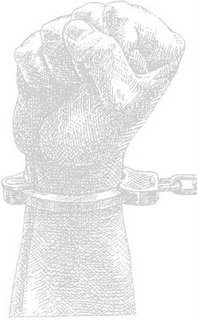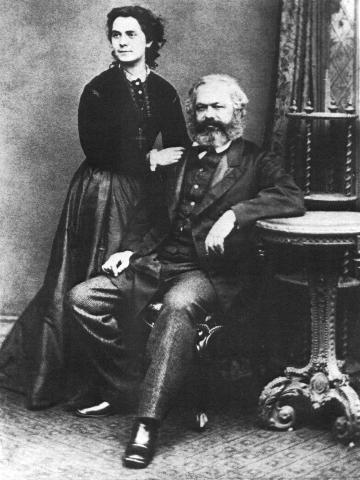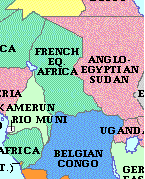 The Harpocrites Bushite plan for crime in Canada is two fold. One is to sacrifice child care for more prison spaces...Tory plan will create jail spaces at expense of day-care spaces ... The other is to create a privatized prison industry in Canada like that which has grown in the United States. Creating more jail spaces than school spaces. Private prison operators waiting to cash in on Harper policies Unfortunately Canada has found out again thanks to the Harris government that this is another Harpocrite plan doomed to failure, just like their day care plan, Ontario jail privatization project failsHarpers call to continue criminlization of marijuana and other drugs is a further example of his Republican North politics. It was the War on Drugs that opened up and exapanded the American privatized prison industrial complex that now dominates in that country.Tory policies would create prison boom: expertsAnd Harpers get tough on guns populist campaign coincides with his get tough on drugs and crime leading to increased spending in one of the most regressive forms of social programs, prisons.
The Harpocrites Bushite plan for crime in Canada is two fold. One is to sacrifice child care for more prison spaces...Tory plan will create jail spaces at expense of day-care spaces ... The other is to create a privatized prison industry in Canada like that which has grown in the United States. Creating more jail spaces than school spaces. Private prison operators waiting to cash in on Harper policies Unfortunately Canada has found out again thanks to the Harris government that this is another Harpocrite plan doomed to failure, just like their day care plan, Ontario jail privatization project failsHarpers call to continue criminlization of marijuana and other drugs is a further example of his Republican North politics. It was the War on Drugs that opened up and exapanded the American privatized prison industrial complex that now dominates in that country.Tory policies would create prison boom: expertsAnd Harpers get tough on guns populist campaign coincides with his get tough on drugs and crime leading to increased spending in one of the most regressive forms of social programs, prisons.
Compiled by Drug Policy Alliance. August 2001.
The U.S. "war on drugs" is big business -- a multi-billion dollar public/private venture that radically inflates the value of illegal drugs and is used to criminalize the poorest people of color, trapping them in a vicious cycle of addiction, unemployment and incarceration: - $27 billion for interdiction and law enforcement, $1.3 billion for Plan Colombia in 2000.
- $9.4 billion in 2000 to imprison close to 500,000 people convicted of non-violent drug offenses, 75% of whom are Black.
- $80 to $100 billion in lost earnings.
- Untold billions in homeless shelters, healthcare, chemical dependency and psychiatric treatment, etc.
It behooves us on the left to take up the call made by Angela Davis and others who call for an end to Prisons and the Prison Industrial Complex. Something Anarchists such as Kropotkin and Berkman have advocated at the turn of last century. Resources on Prison Privatization
The Raggedness of Prison Privatization:
Australia, Britain, Canada, New Zealand and the United States Compared
PRIVATE ADULT PRISONS:
WHAT DO WE REALLY KNOW AND WHY DON’T WE KNOW MORE?*
New Internationalist: Crime pays: well, it does if you run the prison
Grassroots CCA Prison Report 2003
The modern private prison business first emerged and established itself publicly in 1984 when
the Corrections Corporation of America (CCA) was awarded a contract to take over a facility in
Hamilton County, Tennessee. This marked the first time that any government in the country had
contracted out the complete operation of a jail to a private operator.1 The following year, CCA
gained further public attention when it offered to take over the entire state prison system of
Tennessee for $200 million. The bid was ultimately defeated due to strong opposition from
public employees and the skepticism of the state legislature.2 Despite that initial defeat, CCA
since then has successfully expanded, as have other for-profit prison companies. As of
December 2000, there were 153 private correctional facilities (prisons, jails and detention
centers) operating in the United States3 with a capacity of over
Private Prisons: Profits of Crime
Private prisons are a symptom, a response by private capital to the "opportunities" created by society's temper tantrum approach
to the problem of criminality.
By Eve Goldberg and Linda Evans
More than 1.8 million people are currently behind bars in the US -- the highest per capita incarceration rate in the history of the world. In 1995 alone, 150 new US prisons were built and filled.
Privately managed prisons go before the review boardWith 1.5 million people behind bars, the United States imprisons a larger share of its population than any other nation. Indeed, the rate of incarceration in the United States has grown much faster than the population in the past decade, leading to serious overcrowding in local, state and federal al prisons. Federal facilities are operating at 160 percent of capacity, while state facilities are at 117 percent, despite a desired capacity rate of percent that allows for periodic maintenance and repairs, special housing for protective custody, disciplinary cases and emergency needs.
The cost of confining inmates in the United States almost doubled in the past five years, reaching $50 billion lion annually, or $33,334 per inmate, per year. Estimates show that one 700-bed bed jail and one 1,600-bed prison need to be opened every week just to meet the rising demand. The projected annual construction cost of this is $5.98 billion.
But, with the political climate favoring decreasing taxes and reducing the size of government, it is unlikely that cities and counties will be able to build and manage many more prisons.
At the same time, the war on drugs and the get tough, policies, like the "three strikes" laws, will yield even greater numbers of inmates
Find blog posts, photos, events and more off-site about:
Canada, crime, prison, Harper, privatization, private=prisons, War-On-Drugs, Kropotkin, Berkman, Davis, Abolition,









